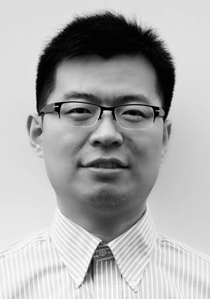Citation
It’s with great pleasure I received the news that Lijun Liu is the recipient of the 2015 Jason Morgan Early Career Award, which recognizes the impact that his work has already made toward understanding the dynamical processes within the deep Earth. In his career thus far, he has produced an impressive array of scientific contributions based upon his holistic approach of integrating diverse suites of geological and geophysical observations with quite advanced numerical methods that model the dynamics of the deep Earth. The successes of using that approach are not easily achieved. Where typical models of the day might be simplified in some way, perhaps generic, Cartesian, or instantaneous, or might avoid the many challenges of Earth’s complicated rheology, Lijun has pushed forward to generate geographically referenced, three-dimensional spherical dynamic models that evolve through tens of millions of years and yield appropriate deformations from the scales of mineral grains to tectonic plates. Yet the real pioneering aspect of this effort is that the models can evolve either forward from a time in history or backward from the present day.
Lijun is working at the leading edge of his discipline and, more importantly, using geodynamic models as a framework for data assimilation. This type of synthesis can help transform tectonophysics into a more integrative science with more predictive capability. It takes both talent and assiduousness, which reflect the qualities that make Lijun deserving of this award. But he’s also the kind of scientist you want to see recognized because of his other virtues such as integrity, objectiveness, and his generosity to those he works with. He inspires those around him with his tremendous work ethic and dedication, which I can assure you is driven by his natural curiosity and determination to figure out how Earth works.
—Dave Stegman, Scripps Institution of Oceanography, La Jolla, Calif.
Response
Thanks, Dave, for the kind citation. It is a great honor to receive this prestigious award. Among the many young talents within the broad field of tectonophysics, I feel very fortunate to be recognized by the American Geophysical Union (AGU) during the early stage of my career. With modern Earth science emphasizing multidisciplinary research and community effort more than ever before, it becomes challenging for individuals to build independent career records. As a result, recognitions from the AGU Honors Program are important for encouraging young researchers to carry on.
Upon receiving this award, I owe many thanks to my former mentors and colleagues. I am indebted to my Ph.D. adviser, Michael Gurnis, and former group members, Eh Tan and Eunseo Choi, from whom I learned a great amount on geodynamic modeling with supercomputers. I am deeply grateful to my postdoc adviser, Dave Stegman, who helped me with not only building realistic subduction models but also the many things that allow me to smoothly transition into a faculty member. I also want to thank colleagues and friends Dietmar Müller, Don Helmberger, Peter Olson, Jason Saleeby, and Shijie Zhong for their strong support and encouragement throughout the years.
My thanks also go to the University of Illinois, where I spent the past 3 years. I sincerely appreciate warmhearted colleagues Stephen Marshak, Xiaodong Song, Bruce Fouke, Tom Johnson, and many other people in the Department of Geology for their unreserved support during the establishment of my geodynamics group. I have enjoyed and benefited from the numerous lovely scientific discussions with students and faculty during our weekly donuts and dynamics seminar.
Finally, I want to thank my families for their persistent support, without which I couldn’t have walked this long.
—Lijun Liu, Department of Geology, University of Illinois at Urbana-Champaign, Urbana
Citation: AGU (2015), Liu receives 2015 Jason Morgan Early Career Award, Eos, 96, doi:10.1029/2015EO036211. Published on 1 October 2015.
Text © 2015. The authors. CC BY-NC 3.0
Except where otherwise noted, images are subject to copyright. Any reuse without express permission from the copyright owner is prohibited.

